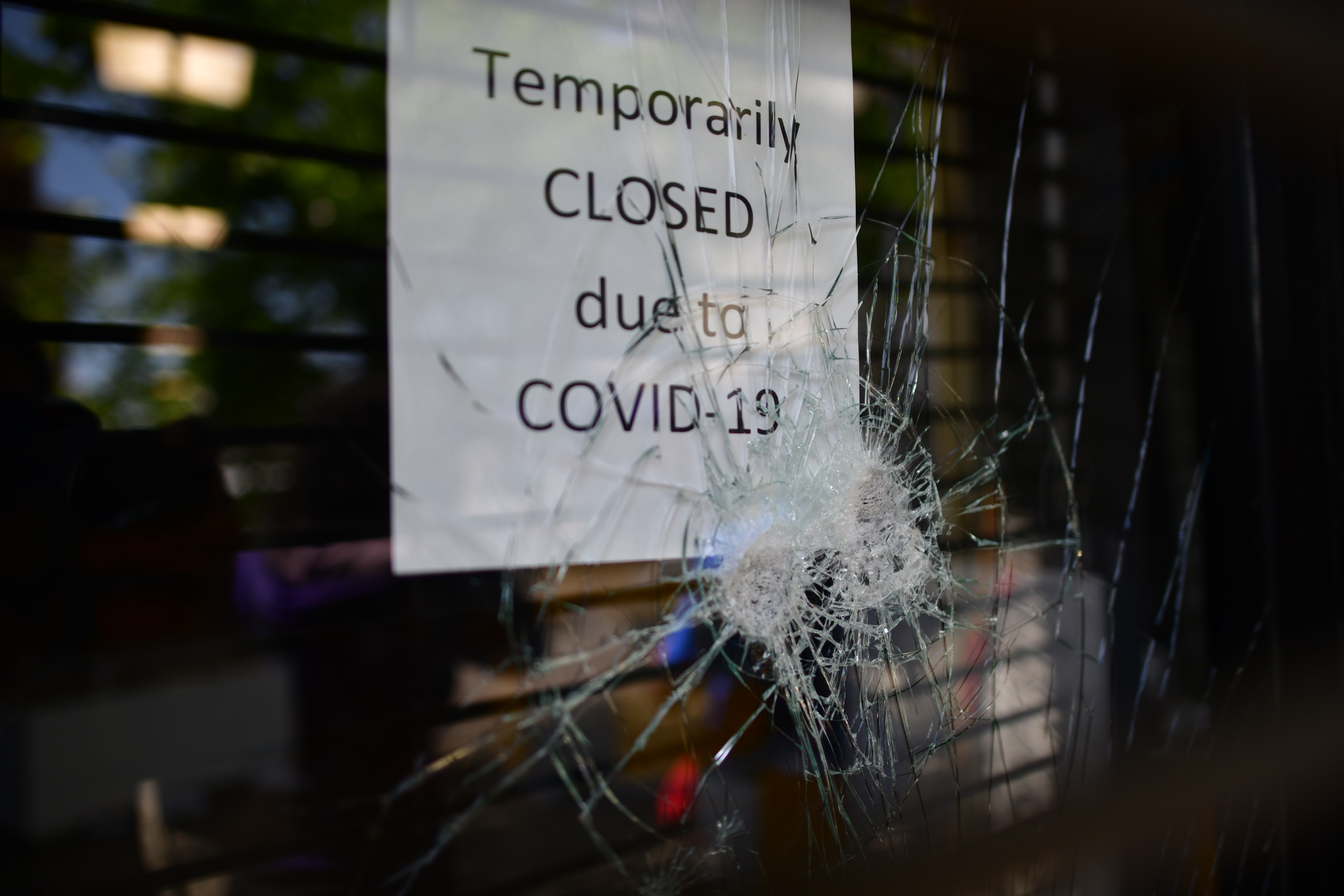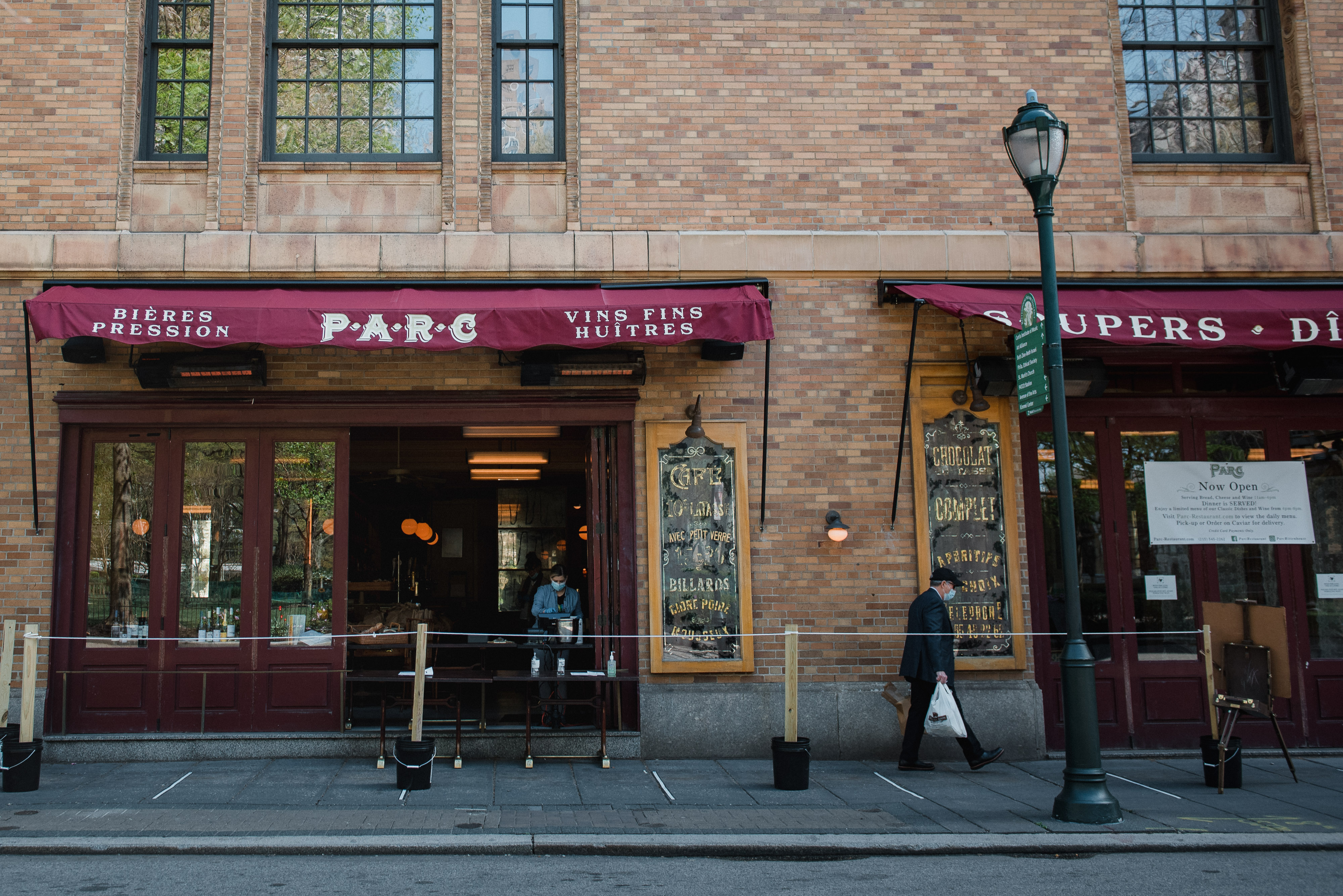As Philadelphia, the state of Pennsylvania and the nation see continued spikes in cases of the coronavirus with high positivity rates, restrictions on Philly's restaurants, gyms and gatherings went into effect 5 p.m. Friday.
Also closed are theaters, museum and library buildings, and the Philadelphia Eagles will no longer have fans in the stands at Lincoln Financial Field.
The full restrictions spelled out:
Philadelphia Mayor Jim Kenney said Monday that city leaders do not enjoy putting the restrictions in place, but that saving lives is paramount.
"Obviously, we don't enjoy doing this, but we cannot ignore the numbers and we have to take these precautions in order to get us back to a healthy situation," Kenney said.
City Health Commissioner Dr. Thomas Farley said contact tracing is showing that the virus is "spreading a little bit everywhere."
Left unmitigated, Farley and Kenney said the city could see more than 3,000 new infections per day and that hospital capacity will be overrun by the end of the year.
The number of people hospitalized in the city on Monday is higher than it was in April – three weeks into a total shutdown at that time.
What's still allowed?
Outdoor dining is still allowed, though not every space is equipped with heaters or other options to shelter customers from the weather. Restaurants can still serve food through takeout and delivery.
Libraries can still serve readers but only for book pickups.
Retail stores can stay open, but with reduced density.
Religious worship can continue, but with reduced occupancy.
Can restaurants survive?
A group called Save Philly Restaurants wrote: "We are going to see a far worse wave of business closures this winter than we have seen so far, because we have used all of our resources to get through the spring and summer. ...As the cases continue to grow, and the weather grows colder, we fear for our businesses' survival."
The few months of indoor dining largely didn't make up for the hit to revenue from spring closures - with capacity restrictions there were not many diners inside. And many owners are in debt after taking out millions loans earlier this year, our partners at the Philadelphia Business Journal reported.
And for some restaurants, takeout is not a large component of their business.
Winnie Clowry, the owner of Winnie's in Manayunk, had a tough conversation with her staff, she told NBC10 Friday.
"What we did yesterday was get together and ask if anyone could take a voluntary layoff. No. Our plan now is they're all coming together and they're going to try and split up the hours, so that everybody gets a little bit of money," she said.
Also of concern is whether customers will want to dine outside in cold weather.
"I'm not planning on, this is probably the last time I'm going to go out," restaurant customer Megan Cloughey told NBC10 as she sat an outdoor table surrounded in a bubble this week. "I'm going to try to stay home as much as possible, it's cold. You don't really need to be outside."
The last several months of aid talks in Washington have not materialized into gains for workers or financially struggling business owners.
Supporting your neighborhood
As the closures take effect, restaurants will need to rely more on takeout orders for revenue. That's one option to support your favorite few places.
“I feel badly about restaurants losing business,” the nation's top infectious disease expert, Dr. Anthony Fauci, recently told CNN. “And I feel it’s almost a neighborly obligation to keep neighborhood restaurants afloat.”
Another option is to buy a gift card, giving them some needed revenue now - cash in later when it's safe to dine out comfortably again.
You could also make an effort to buy holiday gifts - like those restaurant gift cards - all locally. Consider straying from big box or online retail behemoths that have billions in assets and can survive this crisis.
You could also encourage your friends and family to support local businesses, the city suggested on its website.



